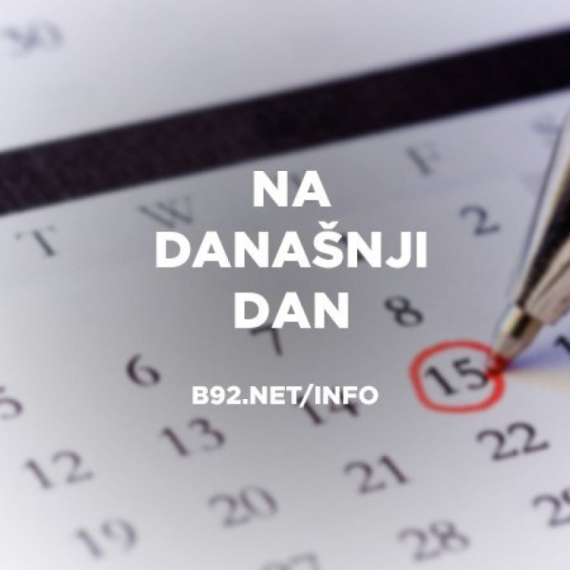EC mission on white Schengen list progress
A European Commission mission arriving today will consider Serbia's progress fulfilling conditions for canceling visas and entering the Schengen white list.
Monday, 02.02.2009.
09:38

A European Commission mission arriving today will consider Serbia's progress fulfilling conditions for canceling visas and entering the Schengen white list. The mission's job will be to ascertain the real situation regarding Serbia’s progress on the road map towards the EU. EC mission on white Schengen list progress Here until Feb. 5, it is the first of four planned missions coming in the next few months to check Serbia’s improvement in fighting organized crime and corruption and establishing cooperation between the police and criminal justice system. European experts will meet with the Ministry of Justice and the police, and, according to Interior Minister Ivica Dacic, will examine how police control borders and documents in the field. “They will visit one police department concerning the issuance of new identity cards. They will visit one border crossing and the Belgrade airport to determine how state border control and protection functions and check our new system for reading biometric information from personal documents,” said Dacic. “We have carried out every legal and sub-legal preparation for furthering Serbia’s path toward the EU, so we expect a positive evaluation by this mission of experts,” he said. Bogoljub Milosavljevic, a police expert and professor of law at Belgrade Union University, believes there has been a visible advance in the fight against organized crime, while border control and document checks will prove a bigger problem. “In the last two years, the police really worked on organized crime in a number of circumstances. However, prosecutions slowed and I think there is basically a problem in the development of cooperation between police, prosecution and the court. Prosecutors and the court act like a bottleneck when fighting organized crime,” said Milosavljevic. “Of course, the issue of border security is an important matter and there are certain problems here, beginning with the administrative borders with Kosovo. And when we consider the other parts of border support we should keep in mind that the police replaced the army at border control relatively recently, border control’s technical capacities are still relatively low, and we still need to work on technology at border crossings,” he explained. The EC mission will prepare a report about Serbia for May, after which the matter of cancelling visas and Serbia’s entrance on the white Schengen list will be transferred to the EU on a political level. One of the necessary conditions required in order for Serbian citizens to join the Schengen white list, regarding their ability to travel in EU countries without a visa, is biometric passports. The replacement of the old blue for the new biometric passports has been prolonged to the end of the year because of sluggishness and technical problems. Ivica Dacic (Tanjug, archive)
EC mission on white Schengen list progress
Here until Feb. 5, it is the first of four planned missions coming in the next few months to check Serbia’s improvement in fighting organized crime and corruption and establishing cooperation between the police and criminal justice system.European experts will meet with the Ministry of Justice and the police, and, according to Interior Minister Ivica Dačić, will examine how police control borders and documents in the field.
“They will visit one police department concerning the issuance of new identity cards. They will visit one border crossing and the Belgrade airport to determine how state border control and protection functions and check our new system for reading biometric information from personal documents,” said Dačić.
“We have carried out every legal and sub-legal preparation for furthering Serbia’s path toward the EU, so we expect a positive evaluation by this mission of experts,” he said.
Bogoljub Milosavljević, a police expert and professor of law at Belgrade Union University, believes there has been a visible advance in the fight against organized crime, while border control and document checks will prove a bigger problem.
“In the last two years, the police really worked on organized crime in a number of circumstances. However, prosecutions slowed and I think there is basically a problem in the development of cooperation between police, prosecution and the court. Prosecutors and the court act like a bottleneck when fighting organized crime,” said Milosavljević.
“Of course, the issue of border security is an important matter and there are certain problems here, beginning with the administrative borders with Kosovo. And when we consider the other parts of border support we should keep in mind that the police replaced the army at border control relatively recently, border control’s technical capacities are still relatively low, and we still need to work on technology at border crossings,” he explained.
The EC mission will prepare a report about Serbia for May, after which the matter of cancelling visas and Serbia’s entrance on the white Schengen list will be transferred to the EU on a political level.
One of the necessary conditions required in order for Serbian citizens to join the Schengen white list, regarding their ability to travel in EU countries without a visa, is biometric passports.
The replacement of the old blue for the new biometric passports has been prolonged to the end of the year because of sluggishness and technical problems.
















































Komentari 4
Pogledaj komentare